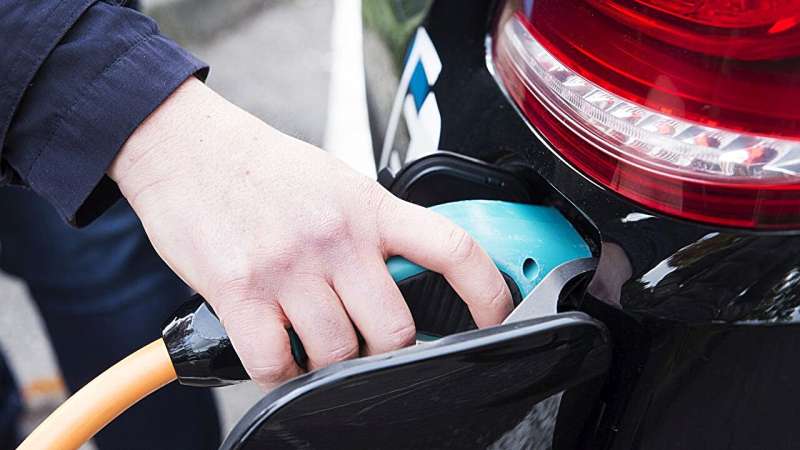
April 1, 2025 by Martin Heidelberger, Karlsruhe Institute of Technology
Collected at: https://techxplore.com/news/2025-04-smart-energy-optimizes-home.html
Photovoltaic systems, battery storage units, and electric vehicles—private households are increasingly turning towards economical and climate-friendly technologies. However, the full potential of these technologies can only be unleashed in combined use.
RAZO Energy, a start-up founded at Karlsruhe Institute of Technology (KIT), provides an intelligent energy management system that links energy sources and building technology, optimizes self-consumption, and increases overall efficiency. RAZO Energy will be present at the KIT booth in the “Energy Solutions” area of Hannover Messe from March 31 to April 4, 2025 (Hall 13, Booth C76).
The increasing electrification of the energy sector is not only changing the way we generate energy, but also how we use it. Many homeowners, however, are not able to leverage the full potential of their photovoltaic systems and battery storage units—often due to inadequate control functionality.
“Many systems can’t be networked as intelligently as their manufacturers promise. Moreover, the existing solutions are often too complicated or don’t allow users to control their energy consumption efficiently,” says Max Schütze, one of the founders of RAZO Energy.
To change this, the start-up developed a cloud-based platform that coordinates various energy sources and electrical consumers in an automated way. “Our system enables a dynamic adjustment of the energy flow and ensures the efficient use of renewables,” says Schütze. This means that electric vehicles, for example, are charged primarily at times when sufficient solar power is available or grid power is cheapest.
Artificial intelligence enables complex forecasts
Thanks to RAZO Energy’s intelligent charging management, noticeable cost savings are possible. For example, e-vehicle users were able to reduce their cost per hundred kilometers from around six euros to an average of only two euros—determined by comparing controlled and uncontrolled charging. The system is based on a mathematical optimization model that uses artificial intelligence.
“If the goal is, for example, to optimize the use of electric vehicles, real-time measurement data is combined with photovoltaic forecasts to determine the best possible charging profile,” says Schütze. “The dynamic control avoids load peaks and shifts the charging process of the electric vehicle or the battery storage unit to favorable times when electricity is cheap or abundant from renewable sources.”
Contribution to energy transition and grid stability
RAZO Energy’s intelligent control not only enables cost savings for individual households, but also has a broader effect: It helps to keep the power grid stable. The system coordinates consumption and generation of energy in an optimum way and thus reduces load peaks—for example, when many households are charging their battery storage units or electric vehicles at the same time.
“Interconnecting many households enables us not only to reduce individual costs, but also to balance power-supply variations,” explains Schütze. This creates flexible loads that can be controlled like a virtual power plant: Excess solar power is used selectively instead of burdening the power mains, and appliances that consume a lot of energy preferably run while renewable energy is abundant.
This way, RAZO Energy not only boosts a better use of renewable energies, but also contributes to the stability of the entire energy infrastructure.

Leave a Reply